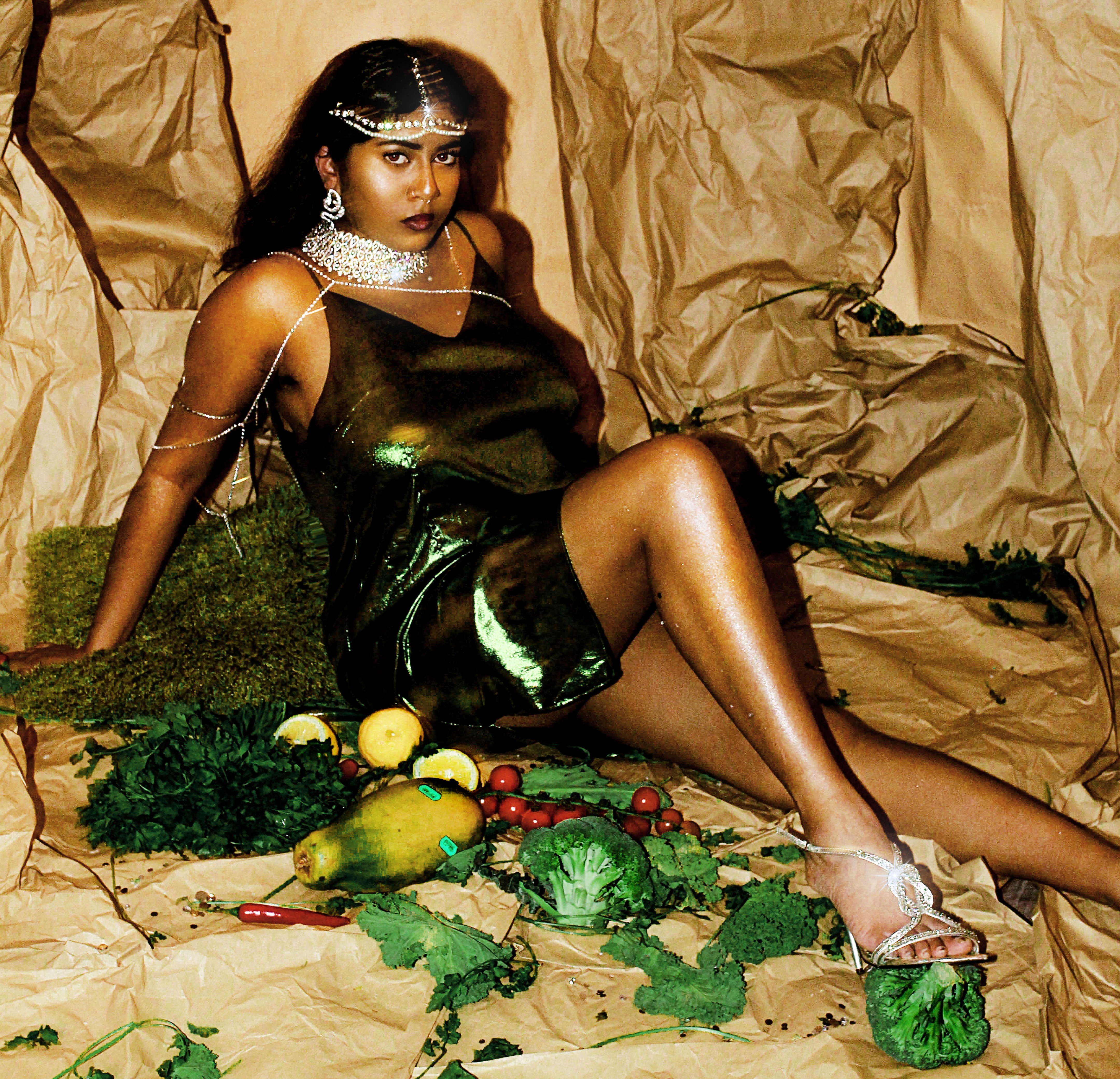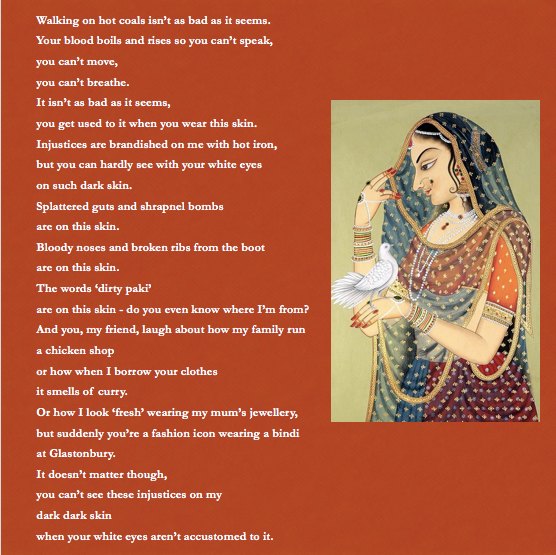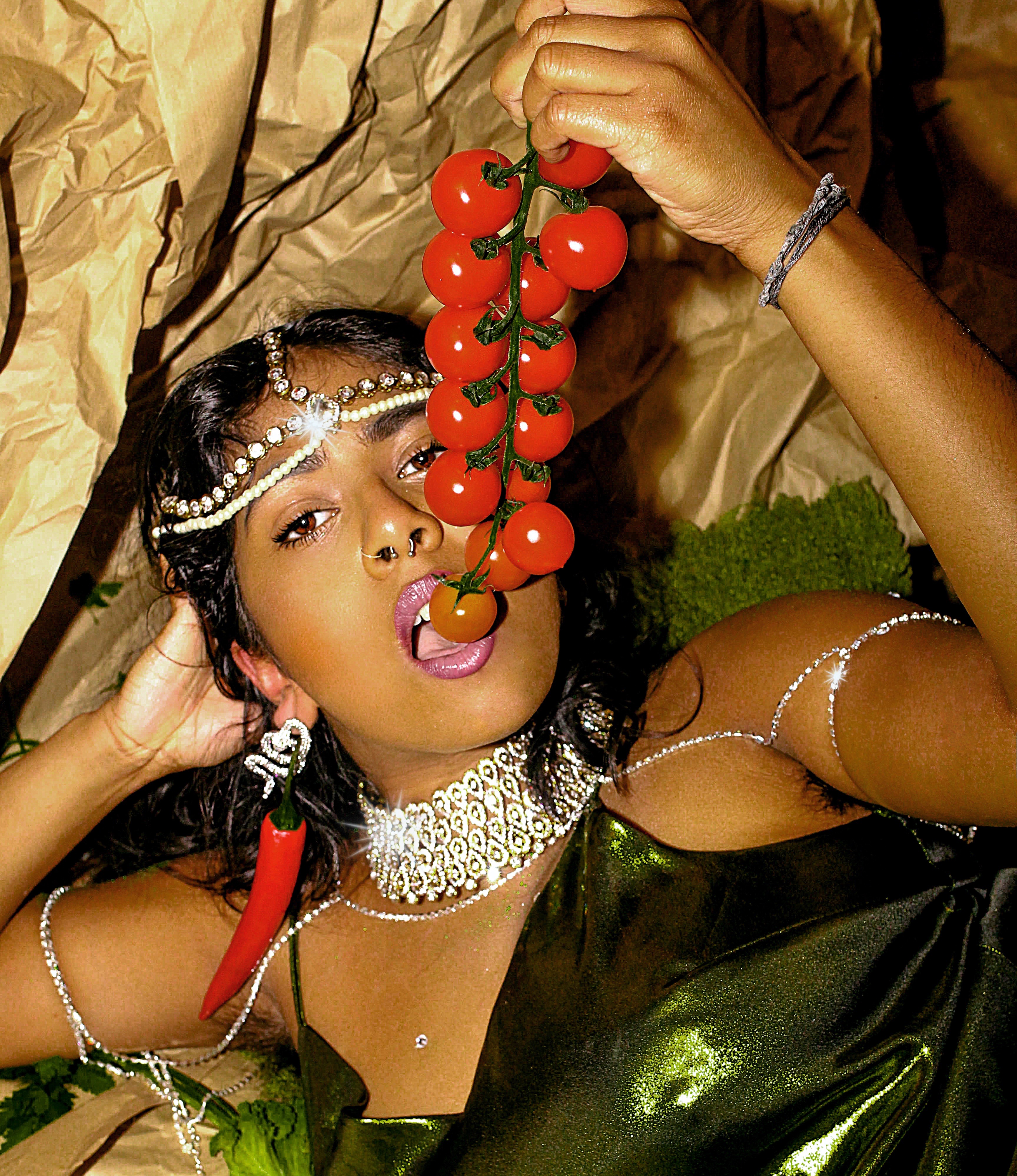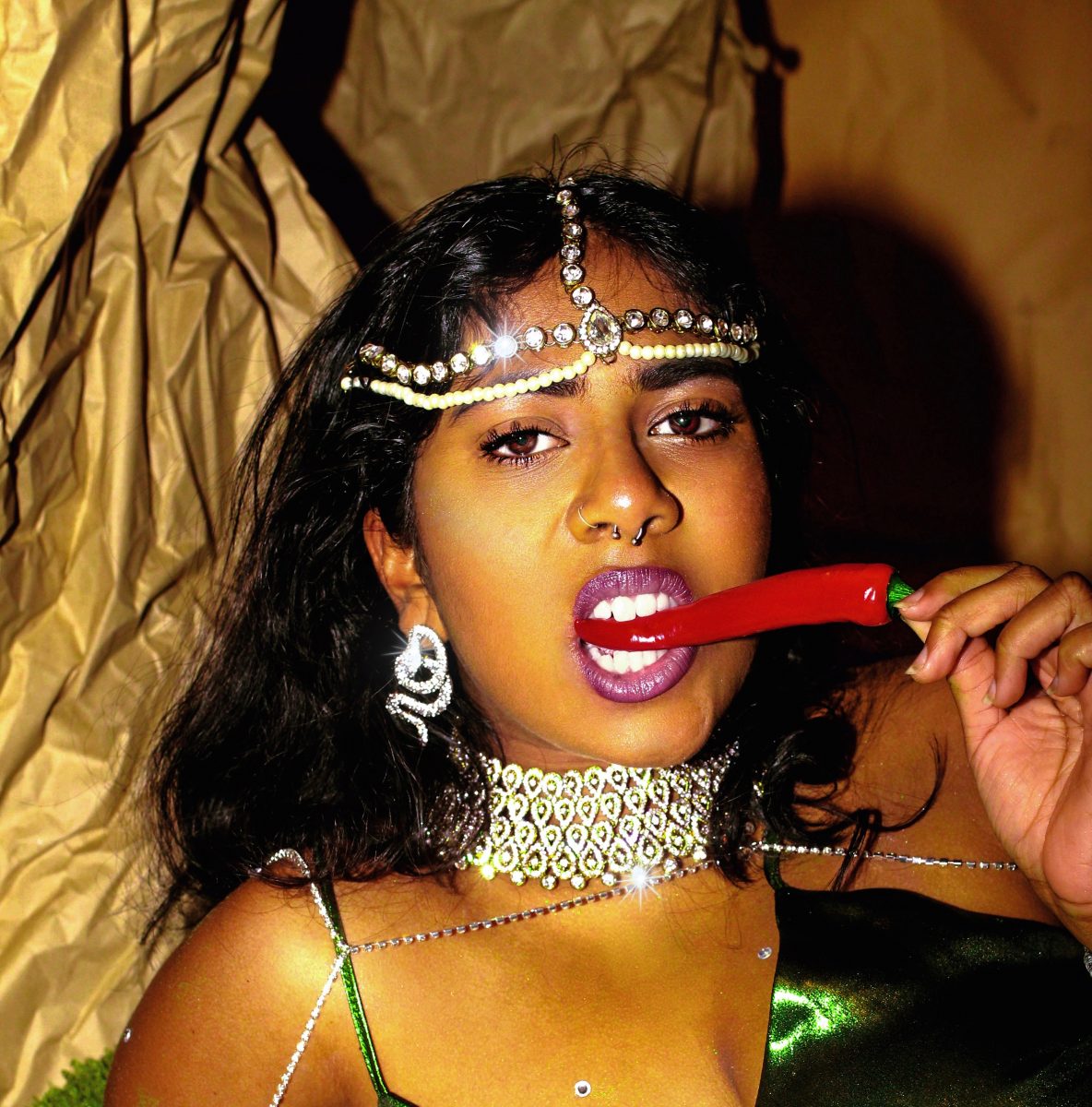Fetishise me, I dare you
Powerful poetry by Nivetha Tilakkumar, a Sri Lankan queen who's unapologetically herself

Photography by Cassandra Joseph
London’s Nivetha Tilakkumar talks intimacy, emotional violence, food and why her friends are her biggest inspiration.
What made you start writing poetry?
Nivetha - When I was younger poetry helped me a lot with depression; it was how I coped with my suffering at the time, but when I got better I didn’t feel the need to write anymore. It was only when I moved to Leeds [University] and away from London and South Asian communities, that I really needed to be writing about my identity and represent diaspora in the Leeds University scene where there is much less representation.
Your first poem, ‘White Eyes’ focuses a lot on violence; how important is it for you to use the lexicon of violence in your poetry?
White Eyes and Homecoming reflect a lot of the violence in Sri Lanka: colonial violence but also the Tamil genocide by the government during the civil war. My parents had to move from village to village because of government bombings. But it also relates to my family’s experiences of violence as immigrants in London.
In White Eyes, the line ‘Bloodied noses and broken ribs from the boot’ refers to my dad’s experience when he first came to London and he was beaten up at the petrol station he worked at. Thankfully I have never experienced physical violence myself, my sister and I growing up as second-generation immigrants experienced racism in a more ‘subtle’ way; a more emotional violence, mostly verbal. When I was younger I just let it slide, now it’s more obvious to me that it was racism. Even at Uni I still experience it, surprisingly often from people I am close to.

What role do you think school and the environment it breeds has to play in this?
Schools definitely need to do a lot more to accommodate kids of colour, especially for our generation as the racism becomes ‘less obvious’. I grew up feeling torn between identifying with my white friends and my culture and heritage. My mum said I had to ‘pick a side’ between brown and white; I think this is something second-generation kids of colour experience a lot. When I was at school there was not much exposure to other cultures in the mainstream, now there’s a lot more like Chewing Gum and writers like Rupi Kaur.
A lot of your poetry focuses on sexuality and the body, how does this intertwine with culture/heritage/emotion or are they separate for you?
I have always kept my sexuality and emotions separate. I’m used to being viewed as a sex symbol and it doesn’t bother me, but as soon as my culture and identity is brought into it, my emotions are too. Fetishise Me, I Dare You is about a boy who wanted to ‘fuck [me] because [I’m] brown’ and it’s ‘kinky’. It’s another level of objectification entirely and it’s dehumanising. I owed it to my heritage and myself to write that poem and make people aware of it.

Much of your poetry links to food and you recently created a cooking Instagram for traditional Sri Lankan cuisine (@madamekumarsfoodoir). What does cooking mean to you?
It sounds cliché but for me cooking is so much more that the food, it’s a collective experience. I miss that being on my year abroad in France: in Asian communities food is shared with your family. At temple the priests have all made food to eat after prayer and I always know we are having people over when my dad brings back loads of Sri Lankan snacks.
I’ve noticed I really love cooking for other people; I’m turning into a Tamil mum! It’s an act of giving. I actually asked my dad where the tradition comes from and he explained that before, as travelling took so much longer, when people arrived it was just courtesy to cook for them, and this tradition has been passed down through generations.
Are there any poets, writers or artists that you love at the moment or feel inspired by?
I really admire MIA. She’s Sri Lankan Tamil and I feel a personal connection with her, she’s very special to me and I’m always inspired. She’s so in touch with her culture, and even though hip-hop/pop is not necessarily associated with Sri Lanka she intertwines culture and heritage throughout her music. The music video for ‘Come Walk With Me’ features loads of animated Hindu Gods in space. Her documentary was also really incredible (MATANGI / MAYA / M.I.A.); I love that although it’s about her, but her life wasn’t even the main focus.
I love Romesh Ranganathan; he’s also Sri Lankan Tamil. And Sophia Takur (@sophiatakur) is an incredible poet; she does spoken word over really cool low-fi beats. Everyone I’m inspired by is of colour.
But I’m really a lot more inspired by my friends other poets in Leeds and London. It’s so much more real and it makes me feel so proud to see them doing bits. For example my friend Kocha is doing so much and it truly inspires me to create and make something of myself. There’s an intimacy in feeling so inspired by those around you and it’s empowering.

Photos by
Words by
Share this article

